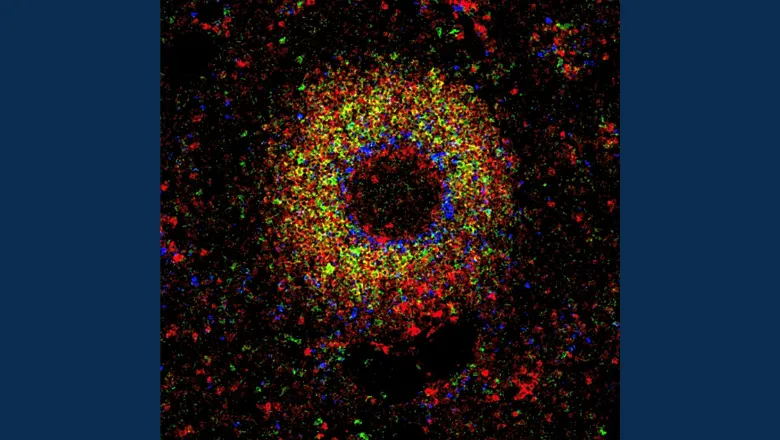Human tissue research is benefitting from the availability of deep methods and analysis pipelines that are enabling us to uncover unprecedented fundamental features of human immunity and pertubations in disease states."
Professor Jo Spencer
18 March 2022
Researchers find previously undetected population complexity in human lymphoid tissue B cells
Deep analysis of human marginal zone B cells could improve scientists’ understanding of lupus nephritis

B cells are responsible for antibody production and as a result they make a major contribution to human immunity. Despite their importance there is a big gap in knowledge of B cells in normal human tissues, including their variability and how they are affected or involved in disease.
A paper authored by several King’s School of Immunology & Microbial Sciences academics and published in Science Immunology today, reveals new insights into B cells and the role they play in disease.
The researchers, based in Professor Jo Spencer's lab, undertook a deep analysis of B cells in human lymphoid tissues from deceased organ donors. They found populations of B cells that had not been seen before and that are impacted differently in patients with the autoimmune disease lupus nephritis.
The researchers have identified that in the future it will be important to know what drives B cell subsets along different differentiation pathways and the significance of changes in differentiation pathways in disease states.
The paper, Two subsets of human marginal zone B cells resolved by global analysis of lymphoid tissues and blood is a result of a collaboration between King’s, the BRC flow and genomics cores and the Universities of Cambridge and Gothenburg. The work was funded by the MRC and the Wellcome Trust.

